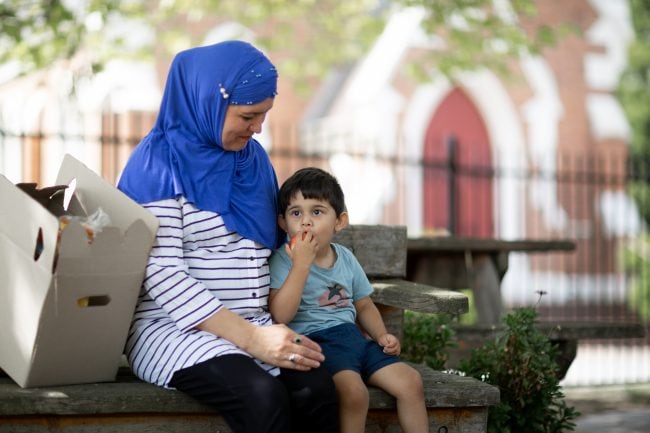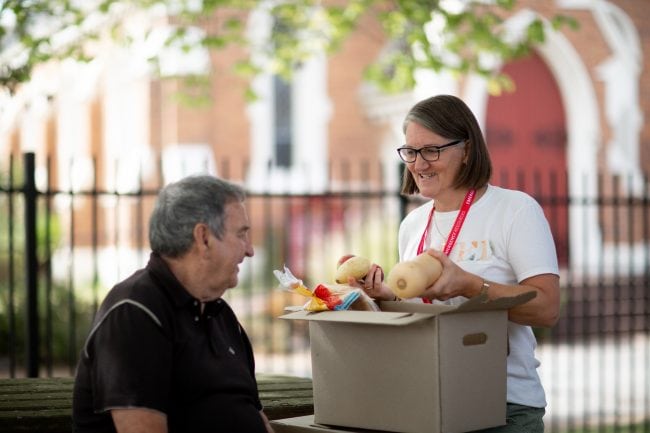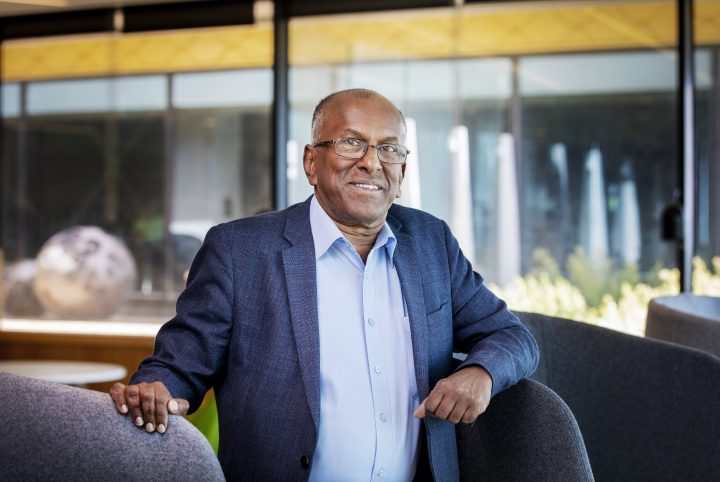
A casestudy shows how the much-maligned meeting plays a pivotal role in helping individuals stay on track.
Australian food relief not-for-profit organisation, The One Box delivers much-needed fresh fruit, vegetables and milk to families struggling with food insecurity.
Each week during the school terms, their box of goodness is a blessing.
But when the COVID-19 pandemic hit, the organisation was thrust into crisis, struggling to maintain donations and unsure if it would be able to maintain its targets of delivering 45,000 boxes to families in need.
Monash Business School researchers were on hand to observe what happened next.
Associate Professor Ralph Kober and Dr Paul Thambar from the Department of Accounting were already working with the organisation and were able to watch the management team rally as the CEO made decisions that would ultimately save the charity.
When a crisis occurs
In their 2020 research, the two researchers highlight the role accounting played in navigating the COVID crisis and the impact on The One Box.
They considered the importance of having strong management controls of budgeting, forecasting and performance reporting in place prior to the crisis. When a crisis occurs, this accounting information can then be drawn upon to assist in decision-making.
Their latest research returned again to The One Box as the organisation grappled with an extraordinary explosion of demand generated by in-crisis families struggling to get food on the table.

The One Box organisation delivers much-needed fresh fruit, vegetables and milk to families struggling with food insecurity.
What they found was the crucial role played by strong controls and accounting practices as managers made swift decisions with their teams to ensure that their organisation survived.
But they saw much more at play than simply good processes.
“Coordination becomes even more challenging than usual but it’s critical as it affects the organisation’s ability to achieve its goals and potentially even survive the crisis,” Dr Thambar says.
“It can be a make-or-break scenario.”
While coordination is a key element of organisational collaboration and an important management control, it seems our knowledge of how this works is limited.
“Accounting practices such as budgets and performance measures are critical for a business to know where it stands and what needs to be tweaked to ensure survival,” Associate Professor Kober says.
“But during the COVID-19 pandemic managers needed to communicate and know the impacts of the crisis and to determine what steps to take to keep the business on track.”
The One Box
The One Box delivers around 2500 weekly boxes of freshly purchased fruit, vegetables, milk, and bread to families across Australia. They operate in most states except Tasmania and the Northern Territory.
When the crisis hit donations were down, and the company’s main target was to keep its promise to thousands of families to deliver a box of fresh fruit and vegetables to their homes during the school term.
It was a target that was non-negotiable for the CEO of The One Box, Martin Halphen.
“The One Box’s delivery of bread, fruit, vegetables and milk to families with young children under 16 through schools and community groups might be the only fresh food the whole family gets,” he said back in September 2020 when Impact spoke with him at the peak of the pandemic.
Dr Thambar says the organisation was so adept at putting the target of 45,000 boxes at the forefront of their meetings that they came very close to meeting it.
“I think they only just fell short,” Dr Thambar says.
But in the following year, 2021 they reached their new target of 60,000 boxes and in 2022 they are on track to reach their target of 100,000.
Meetings are not a waste of time
Professor Kober says that while recent media articles suggest that meetings are a waste of time and can have negative mental health outcomes, they did not find this to be the case.
“It really depends on how the meeting is conducted,” Professor Kober says.
“We studied the micro-processes that occur within meetings and how decisions are made and whether they stick.”
The One Box had a number of ways to help its managers stay focused.
“The meeting agenda and the slide deck with accounting and non-accounting information functioned as material artefacts, helping the meeting stay focused and useful,” Dr Thambar says.
The agenda was structured to cover all key operational functions and activities. The first item on the agenda was a summary of the past week’s actual box numbers which were compared to the budget targets and to the year-to-date numbers.
“A forecast of the budgeted box numbers based on the weekly and year-to-date actual box numbers was also provided,” he says.
“This information helped to shape the discussion in the meeting and focused attention on what operational activities were impacted by the pandemic and required changes.”
In a way, the box numbers and especially the budget target framed the COVID-19 pandemic for the organisation.
Making ‘sense’ of the situation
For the researchers to investigate how managers come together and agree on actions during a period of extremely high uncertainty and ambiguity, they adopted a ‘sensemaking’ perspective.
This describes the manner in which people attempt to comprehend ambiguous, unexpected, or confusing issues or events (such as a once in a hundred-year pandemic such as COVID-19) and make sense of them.
Dr Thambar explains it as managers helping each other to make sense of the situation using available accounting and non-accounting information – in other words, getting everyone on the same page.
“Sensemaking arises when employees from different levels within the organisational come together, mostly in meetings, and interact to construct rational accounts that allow them to understand and comprehend these occurrences,” Dr Thambar says.
“Meaning is rendered and shared based on past experiences to allow for a framing of the current situation.”
On the same page
The processes of sensemaking often involve individual employees engaging in sensegiving – a key element of sensemaking in which they attempt to influence others towards their preferred picture of organisational reality. Sensegiving is senior managers trying to help more junior managers to make sense of the situation.
The researchers adapted an existing framework of five types of organisational sensemaking – guided, restricted, fragmented, minimal, and reflexive – that differs based on the level of sensegiving of the chief executive officer (CEO) and other managers to guide their research
Using this framework, they considered how the management control practice of coordination was carried out during a crisis and what role organisational sensemaking processes plays in enabling this coordination.

In 2022 The One Box is on track to deliver 100,000 boxes to those in need.
The importance of meetings
The researchers explain that using accounting management control practices such as target during a crisis can help to galvanise the team towards a common goal. The target functions as an anchor, helping the organisational managers to redesign any activities as needed to maintain operational focus in the crisis.
Making sense of the situation, they can focus on what absolutely needs to get done to meet the target.
Using accounting information to draw upon in the form of performance reports helps establish an agreed-upon course of action.
“We observed weekly virtual planning meetings, examining how managers arrived at decisions relating to TOB’s response to the crisis,” Dr Thambar says.
“Meetings are an important management control practice that enables organisational personnel to interact and coordinate activities. This makes them an ideal environment in which to observe the organisation’s sensemaking approach evolve.”
In other words, meetings provide a platform for integration and liaison and the primary way in which managers engaged in sensemaking.
This was especially true because of state government work from home orders which made weekly virtual online planning meetings the only time that all The One Box managers came together.
“These weekly meetings formed the central platform through which coordination was facilitated,” Dr Thambar says.
They found that meetings helped managers to develop a common understanding of the key threats posed by the pandemic and to arrive at collective decisions regarding The One Box’s responses.

Meetings provide a platform for sensemaking processes like integration and liaison.
Coordinating during a crisis
The One Box engaged in three of the five types of organisational sensemaking processes (guided, reflexive, and restricted) which enabled coordination.
For each of these forms of sensemaking, other accounting practices acted as a trigger mechanism, triggering the process.
“With guided sensemaking, the CEO and managers all engaged in sensegiving, each trying to convince the others of their own preferred picture of organisational reality,” Associate Professor Kober says.
“We found that organisational sensemaking processes enabled The One Box to carry out the management control practice of coordination during the COVID-19 pandemic to develop a common understanding of goals and required actions.”


